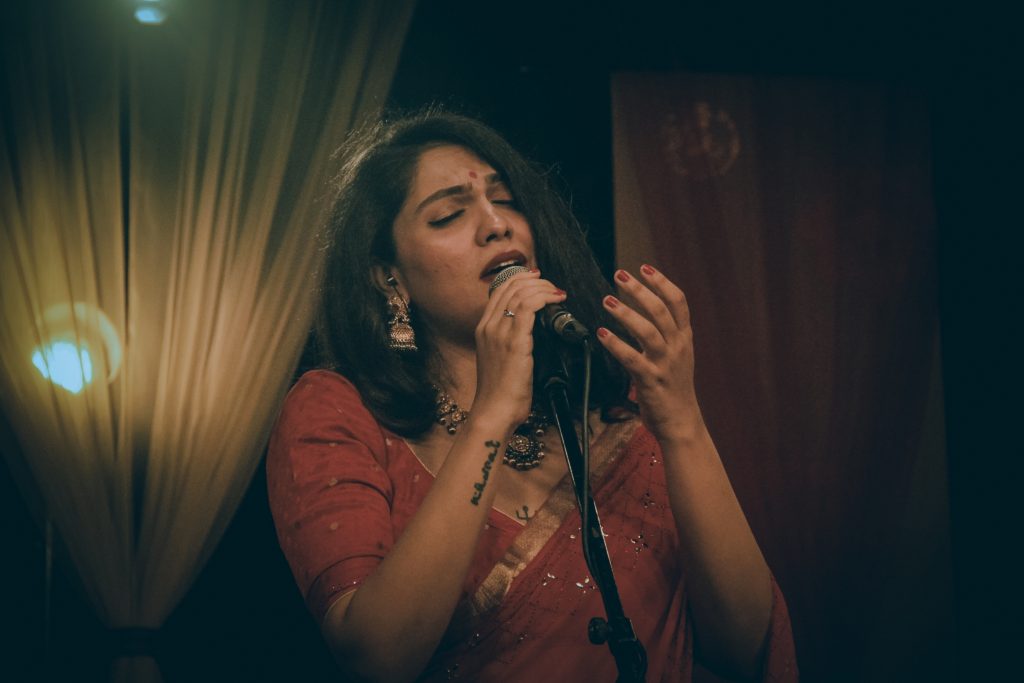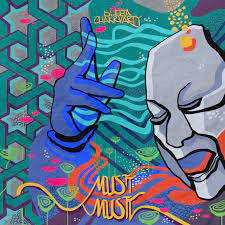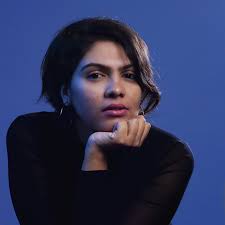We do love a world music special here at Rock the Joint Magazine, and her October 2022 EP “Ek Sutra” along with a version of the classic Nusrat Fateh Ali Khan song “Mustt Mustt” brought her to our attention.
Very broadly, Isheeta Chakrvarty is a jazz-infused musician who has roots in classic Indian tradition and has been a playback singer for “Bombay Begums” (2021). We are staying true to our goal for the magazine, which is to help our readers find great new music and maybe hear artists from around the world for the first time. In the UK, our readers may be familiar with her earlier single, “Sawan Ki Ritu.“
Isheeta- I have been singing since I was a child, training in Hindustani classical music, the North Indian tradition, all my life. I knew I had to do music, and I had a mentor. I had come out of college and wanted to do my Master’s in English literature, and I was harboring plans to go to Oxford and study literature and all of that. So I thought I could do my music on the side. But my mentor told me that I needed to realize it was a 24/7 business. There had to be no plan B, no safety net. So, for me, that worked. No more Oxford. And get prepared for me to perhaps not have money or fame, but I will do what I love. That was me, aged 23ish, and my friends, who were chasing the corporate world, and that is how it happened.
My debut EP came out in October, “Ek Sutra,” and it has a very different sound to “Musst Musst,” with more classical acoustic guitar, melody, and jazz. It has different aspects to enjoy. It is difficult to single out one element, I seek to create a sonic space.

We moved on to talking about the music business generally in the West and how artists have moved to merchandise and concerts to make a living, relying less on music post downloads. It is interesting to look at the bigger picture, and we talked about how things were in India.
Isheeta- The live gig situation has opened up again here post pandemic. But it is the same; there is music for the soul as well as music for the wallet. I find myself drawn more toward music for the soul as opposed to music for the money, I want to do the music my soul feels happy about. I am also an educator, I do recording gigs, and I sing for films. As a thought, consider art turned into content, putting 25 years of your life into a two minute reel. Our minds are conditioned.
It is certainly a more disposable society. Look at how we used to listen to a whole album from beginning to end as the artist wanted it to be heard. The pride in holding the album and looking at the artwork on the cover, we seem to have lost a lot.
For us, the interview had to begin with a shared love for the amazing Nusrat Fateh Ali Khan, the much-missed Qawwali singer, a Sufi form of devotional song. Isheeta beats us in the fandom there, as she has a tattoo on her arm! “Musst Musst” when you listen to it, shows the international aspect of music, you can listen to it in any language at all. But the words refer to devotional lyrics about a Sufi saint. Isheeta does a great version and infuses it with her own style.
Isheeta – Well, thanks for the appreciation! I was just out of college when I fell in love with Nusrat Fateh Ali Khan, so I guess I was late finding him. But no matter how late you find some artists, they do something to your soul. The first time I heard his qawwali, I remember thinking, “What is this?’ It was jarring and new, but it captured me, and I could not stop listening to it. I fell hook, line, and sinker for the music. But let me clarify, I am not a Sufi singer; it is a tradition, a culture, and a way of life. I have not adopted that. Musst Musst is very catchy; it is an incredible piece of music. I am a jazz singer also, and jazz is something I love too. I’m always looking for a link between my roots and the other types of music I make.
The umbrella term ‘fusion’ can be used for my music, but I am not a big fan of it being applied to me. Also, fusion has too many contexts. But, “Musst Musst” was a song I have been singing for years, but I wanted to do something different with it. I played it at a pop festival in Kazakhstan, and I wanted it to have R & B influence and some soul, and those influences were in the sound. I came back and recorded it, added the strings, and it just happened. But it was a huge risk for me, there was money spent behind it and it took a year to release. I was unsure and had some reservations about it. But then here we are, and because of that song, there have been many who have reached out to me.

Of course, Indian music, aside from the classical tradition, is synonymous today with Bollywood. Isheeta has worked in Bollywood and sung for several popular shows.
Isheeta- When I moved to Bombay, I signed for my first playback song for Yash Raj films, it was Salman Khan, a film called ‘Sultan’ (2016), and the song was called “Baby Ko Bass” (Baby likes bass). I have done some independent film work too, I did “Three Smoking Barrels” on the Netflix India, Amazon India sides of things.
Isheeta can lyrically move from Hindi to English. Some of her material is in English, some of her Jazz work is in English, and we wondered if the Isheeta Chakrvarty Collective made a decision to use English for some songs. Did it matter?
Isheeta- For me, the Collective is an attempt to bring the elements I love together. A typical collective set would have some traditional jazz and some contemporary jazz, along with some traditional Indian pieces written in the idiom of jazz. My first single is a traditional, semi classical piece with a jazz trio, a sound I’m exploring.
We talked about the passing of time and how musical choices and tastes change. It’s always interesting to consider whether our teenage selves would be impressed with what we listen to now. How would a 16-year-old Isheeta react to her music now?
Isheeta- When I look back, I used to compose a lot. I have such interesting stuff I composed in my late teens, and I have released none of it. I just don’t resonate with that part of me at all. But it was cool for that time, and I believe the music you listened to in your teens, if I listen to it now, I resonate with me in a different space. But I have those moments when I wonder how on earth I ever listened to that stuff…and the music industry as a whole now. With downloading, there is access to so many songs, so many artists, so many sounds, it is overwhelming, and so much does not mean quality.

It certainly changed. For those of us past our mid-forties, there was a world where you bought the vinyl or the cassette; perhaps you heard a song on the radio, and then it was gone. It’s now a massive menu that can be quite confusing in some ways.
Isheeta- It is so commodified, and it does make me feel sad, but it is the time we live in, and due to that technology, I learn so much more. There are avenues opening up for my music and for me to learn about music on a huge stage.
Perhaps we have to have lived to truly appreciate soul and blues; to connect to the lyrics and emotions, you have to have actually gone through things in life; Shirley King made this point to us, and it’s true, you appreciate the emotion more when you’ve gone through life more. I appreciate and love Nina Simone now far more than my teenage self did.
Isheeta- 100%. There is so much you have to live through, especially for blues and soul. You say something, and then years later you revisit it and connect to it differently as you live. I do devotional music, and you don’t just talk melody or chords; this is a different space. And Nina Simone, her rendition of “Don’t Explain” it is so painful; she has lived life to sing a song like that.
And to close with a chance for Isheeta to plug her music!
Isheeta- “Ek Sutra,” is a personal work, an exploration of my inner self, that I released on EP. It has been so well produced and it is a fulfilling collaboration with some incredible artists. It is personal and devotional, one thread connecting us!
We hope you enjoyed this feature. If you are reading this, then do note that all our content is free. Please do buy us a coffee on the “Support Us” button below; we do like to be appreciated!
Original composition and lyrics by Ustad Nusrat Fateh Ali Khan, Bari Nizami, and M. Arshad Vocals: Isheeta Chakrvarty Piano : Anurag Naidu Bass: Nathan Thomas Drums: Dhir Mody Seven Islands String Quartet Violins : Mika Nishimura Kushmita Biswakarma Viola : Shirish Malhotra Cello: Vian Perreira Strings Arrangement: Anurag Naidu Shirish Malhotra
By Benny (the Ball) Benson
&
Mark C Chambers





Great blog you have here.. It’s difficult to find quality writing like yours nowadays.
I seriously appreciate individuals like you!
Take care!!